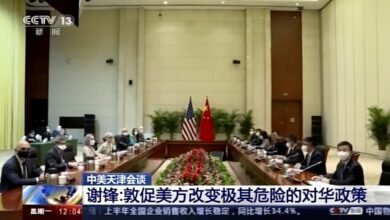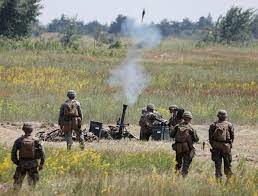
The war in Gaza is no longer a simple border conflict. What we are witnessing is a full-blown humanitarian catastrophe—one that not only devastates the people of a region but also shakes the very meaning of justice, human rights, and the deafening silence of the international community.
This crisis began with Hamas’s deadly incursion—taking civilians hostage and crossing borders—an act that is indefensible under international law. Yet Israel’s response was not a legitimate act of defense, but rather a campaign of blind vengeance: relentless bombings of homes, hospitals, refugee camps, and even aid convoys. The victims, in overwhelming numbers, were women, children, and the elderly.
But beyond the physical destruction, it was not only the sound of bombs that echoed—it was a deeper, more haunting silence. The silence of international institutions. A silence that not only exposed their ineffectiveness but suggested something even more disturbing: that the blood of Middle Eastern people is somehow worth less.
Benjamin Netanyahu, grappling with internal political turmoil, saw this war as an opportunity to rebuild his legitimacy and consolidate power. To him, the crisis was not merely a threat—it was a political tool. And the attacks were not limited to Hamas; they encompassed the entire civilian population of Gaza.
In the United States, Donald Trump—now serving his second term as President—offered unconditional support to Israel, positioning himself not as a neutral mediator, but as a military partner in the war. He voiced no concern over the killing of civilians. On the contrary, through his speeches and tweets, he praised Israel’s military actions. His stance transformed the role of the U.S. from potential peacemaker to direct actor in the conflict.
On the other side, the Islamic Republic of Iran exploited the war to further its regional ambitions. Its financial, military, and intelligence support to Hamas stemmed not from compassion for Palestinians, but from its long-standing proxy strategies in the region. For Tehran, Gaza was merely a pawn—nothing more.
Amid this chaos, hundreds of journalists and media workers struggled to be the voice of the people. Yet according to official reports, over 230 journalists were killed in the bombardments. The deliberate targeting of media personnel and humanitarian workers reveals a deeper truth: this is not just a war of weapons, but a full-scale war against narrative and truth.
The United Nations, the Security Council, and international human rights organizations remained largely impotent. They issued statements and expressed concern, but nothing meaningful followed. And yet, the catastrophe in Gaza cannot be stopped by words. When a child dies in a food line from hunger, or a father cradles the lifeless body of his daughter, the world must respond with more than sympathy.
Today, Gaza is not merely a besieged territory; it is the symbol of a wounded global conscience. It is the mirror of moral collapse in an age that prides itself on progress and enlightenment. A place where death has become routine, and cries for help go unanswered.
This is not a report. It is a cry. A cry for the child killed while waiting for water. A cry for the mother who lost her home—and her dreams—with a single missile. A cry for a truth the world is trying to bury.
If we do not write today, tomorrow’s history will be written by those who were complicit in this crime. If we do not stand today, there may be nothing left of humanity to defend tomorrow.




